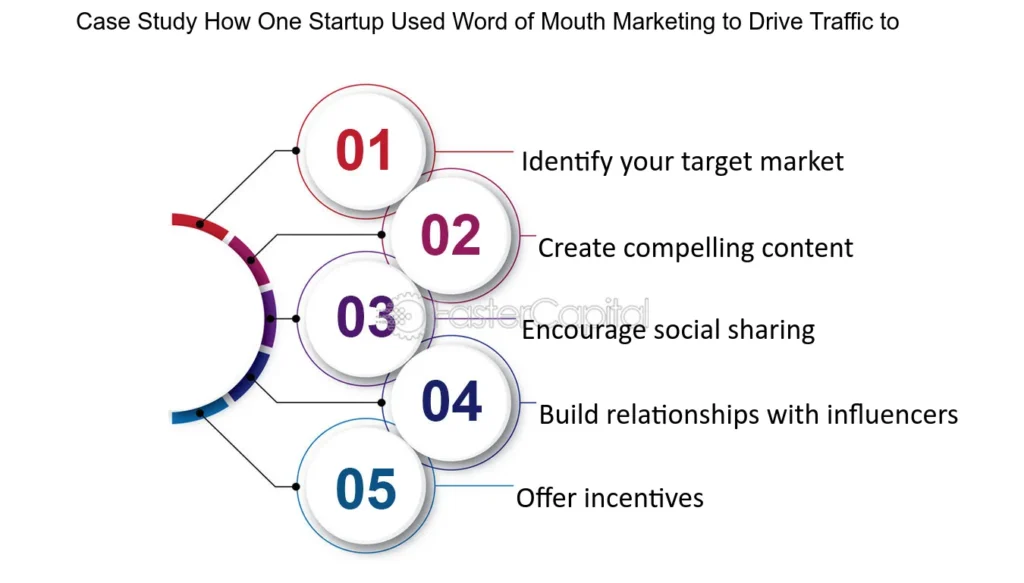In the vast realm of digital marketing, where choices abound and competition is fierce, businesses are constantly seeking effective strategies to capture consumer attention and drive sales. One of the most powerful yet often underestimated tools in a marketer’s arsenal is social proof. Social proof, in its simplest terms, refers to the phenomenon where individuals look to the actions and opinions of others to guide their own decisions. In the context of digital marketing, social proof can significantly influence consumer behavior, particularly through reviews and testimonials. This blog explores how social proof impacts digital marketing and why businesses should leverage it to enhance their sales.
Understanding Social Proof
Social proof comes in various forms, including:

– Customer Reviews: Written feedback from customers about their experiences with a product or service. These can be found on websites, social media, and third-party review platforms.
– Testimonials: Detailed endorsements from satisfied customers or influential figures that highlight specific benefits and experiences.
– User-Generated Content (UGC): Photos, videos, or posts created by customers showcasing a product or service in use. UGC can be particularly effective on social media platforms where visuals can grab attention.
– Ratings and Stars: Visual indicators, often seen on e-commerce platforms, that show an aggregate score based on customer feedback. For example, a product rated 4.5 out of 5 stars is likely to attract more interest.
– Influencer Endorsements: Recommendations from individuals with a significant following who can sway consumer opinions. Influencers act as trusted sources, and their endorsements can carry significant weight.
The Psychological Underpinning of Social Proof
The concept of social proof is rooted in psychology. People often look to others for cues on how to behave, especially in uncertain situations. This tendency is amplified in the digital space, where consumers may feel overwhelmed by choices. Social proof helps to reduce this uncertainty by providing reassurance that a product or service is worth their time and money.
Key Psychological Theories:

– Bandwagon Effect: This phenomenon describes how individuals are more likely to adopt certain behaviors, styles, or attitudes if they see others doing the same. In marketing, when potential customers see that many others are purchasing a product, they may feel compelled to join in.
– Fear of Missing Out (FOMO): Social proof taps into consumers’ fears of missing out on beneficial experiences or products that others are enjoying. Marketers can leverage FOMO by showcasing limited-time offers or highlighting popular products.
– Trust and Credibility: Consumers are more likely to trust peer recommendations than traditional advertising. Social proof builds credibility, making potential buyers feel more confident in their purchasing decisions. When consumers see that other
The Role of Reviews and Testimonials in Driving Sales
1. Building Trust
Trust is a fundamental factor in any purchasing decision. Online consumers cannot physically examine products before buying, making trust essential. Reviews and testimonials serve as a third-party endorsement, providing validation that a product or service delivers on its promises. Positive reviews can foster trust, while negative reviews can deter potential customers.
For example, a consumer searching for a new smartphone may come across two brands: one with glowing reviews highlighting its durability and user-friendly interface and another with mixed reviews mentioning poor battery life. The first brand is likely to capture the consumer’s attention and drive them toward a purchase.
2. Enhancing Conversion Rates
Research shows that displaying reviews and testimonials can significantly increase conversion rates. According to a study by the Spiegel Research Center, displaying reviews can increase conversion rates by up to 270%. Prospective customers are more likely to complete a purchase when they see positive feedback from others.
Moreover, the number of reviews also matters; products with numerous reviews tend to perform better than those with just a few. This indicates a consensus on quality and satisfaction, further encouraging new buyers to commit to a purchase.
3. Improving Search Engine Rankings
Customer reviews can also contribute to search engine optimization (SEO). Google values fresh content, and user-generated content (like reviews) can improve a website’s relevance and authority. Additionally, reviews can increase local SEO, helping businesses rank higher in local search results.
Incorporating customer feedback into product pages, blogs, or FAQs not only enhances the user experience but also sends positive signals to search engines, improving your site’s visibility in search results.
4. Encouraging Repeat Business
Satisfied customers who leave positive reviews are likely to return. Reviews and testimonials not only attract new customers but also reinforce existing relationships, encouraging repeat purchases. According to a survey by Invesp, 57% of consumers are influenced by online reviews, and 73% of customers say that positive reviews make them trust a brand more.
Businesses that actively engage with their customers and encourage feedback create a cycle of loyalty, where customers feel valued and are more likely to return.
5. Driving Word-of-Mouth Marketing

Social proof, particularly in the form of positive reviews, can stimulate word-of-mouth marketing. When customers share their positive experiences online, they amplify the reach of your brand and can bring in new customers through organic recommendations.
Encouraging customers to share their experiences on social media platforms, along with a specific hashtag or tagging your brand, can lead to increased visibility and reach. This type of organic promotion can be far more effective than traditional advertising.
Best Practices for Leveraging Social Proof in Digital Marketing
1. Encourage Reviews
Actively encourage customers to leave reviews after their purchase. Send follow-up emails, offer incentives, or create engaging prompts on social media that invite feedback. For instance, consider sending a personalized thank-you email with a request for a review and an easy-to-follow link to your review platform.
2. Showcase Testimonials
Feature compelling testimonials prominently on your website, social media, and marketing materials. Highlight specific benefits and outcomes to resonate with potential customers. Consider using video testimonials for a more authentic touch, as they can showcase genuine enthusiasm and satisfaction.
3. Utilize User-Generated Content
Encourage customers to share their experiences with your products through photos and videos. Repost this content on your brand’s social media channels to create authenticity and engage your audience.
Running campaigns or contests that reward customers for sharing their experiences can encourage UGC. For example, a clothing brand might host a contest for the best styled outfit featuring their products, amplifying brand visibility and customer engagement.
4. Respond to Reviews
Engage with your customers by responding to their reviews, both positive and negative. This interaction not only shows that you value customer feedback but also builds trust with potential buyers observing the conversation.
A thoughtful response to a negative review can showcase your commitment to customer satisfaction and potentially turn a dissatisfied customer into a loyal advocate.
5. Leverage Influencers
Partner with influencers who align with your brand values and have a loyal following. Their endorsements can provide substantial social proof, particularly if they genuinely believe in your product.
When selecting influencers, consider their audience demographics and engagement rates to ensure they reach potential customers effectively.
6. Create a Review Page
Establish a dedicated review page on your website where customers can share their thoughts and experiences. Make it easily accessible and ensure that it stands out on your website.
Additionally, featuring a selection of reviews on product pages can provide quick insights for potential buyers.
The Power of Testimonials and Reviews
One of the most potent forms of social proof is customer testimonials. These genuine accounts from satisfied clients not only enhance your brand’s trustworthiness but also significantly influence potential customers. For example, Amazon showcases user reviews prominently, allowing prospective buyers to gauge the quality of a product through the experiences of others.

Case Study Example: Zocdoc
Consider Zocdoc, an online medical care appointment booking service. They prominently display patient testimonials on their site, highlighting personal experiences that resonate with users. A simple statement like, “I was able to find a doctor who listened to my concerns and provided exceptional care!” not only enhances trust but also illustrates the tangible benefits of using their service. This strategy results in higher conversion rates, as potential clients feel reassured by the success stories of others.
Celebrity Endorsements: Riding the Bandwagon Effect
Celebrity endorsements can also serve as a powerful form of social proof, leveraging the popularity and influence of well-known personalities to attract consumers. The bandwagon effect, a psychological phenomenon where people do something primarily because others are doing it, often comes into play here.
For instance, Nike has effectively utilized endorsements from high-profile athletes like LeBron James and Serena Williams to elevate its brand image. When a star athlete publicly supports a product, it not only lends credibility but also encourages their fans to make purchases. A study found that 49% of consumers stated they would consider buying a product endorsed by a celebrity they admire.
Example: Fenty Beauty
Rihanna’s Fenty Beauty line is another exemplary case. By using a diverse group of models and influencers in her campaigns, the brand showcased the products on various skin tones and types, encouraging fans to see themselves represented. This approach not only attracted a broad audience but also fostered a sense of community, driving significant sales.
Peer Approval: The Trust Factor
Beyond celebrity endorsements, peer approval is a critical form of social proof. Research has consistently shown that recommendations from friends or family members significantly influence purchasing decisions. In fact, a Nielsen study revealed that 83% of consumers trust recommendations from family and friends over all forms of advertising.
Example: Yelp and Local Businesses
Consider platforms like Yelp, which rely heavily on user-generated reviews. A restaurant with a high rating and numerous positive reviews is more likely to attract new customers than one with poor ratings. This peer approval serves as a powerful motivator, as people tend to trust the experiences of fellow consumers more than traditional advertisements.
Certifications and Awards: A Seal of Approval
Another impactful form of social proof is certifications and awards. These accolades provide third-party validation of your brand’s quality and reliability, making it easier for potential clients to trust your services. For example, a digital marketing agency that showcases certifications from recognized organizations (like Google or HubSpot) not only highlights its expertise but also reassures clients of its credibility.
Example: TrustPilot
Websites like TrustPilot allow customers to leave reviews about their experiences with various brands. Companies that actively engage with their customers on these platforms often see improved reputations and increased sales. For instance, when potential clients see that a company has a “Great” or “Excellent” rating on TrustPilot, it builds trust and can sway their decision to purchase services.
TL;DR
In an era where consumers have more choices than ever, leveraging social proof through reviews and testimonials is a crucial strategy in digital marketing. By building trust, enhancing conversion rates, and encouraging repeat business, social proof can directly impact your sales and brand reputation.
Businesses that prioritize social proof in their marketing efforts will find themselves not only attracting new customers but also fostering long-lasting relationships with existing ones. In a world driven by opinions and experiences, social proof is the beacon that can guide potential customers to your brand.
Ultimately, embracing social proof is not just about collecting reviews; it’s about creating a community of satisfied customers who champion your brand. By recognizing the power of social proof and implementing effective strategies, businesses can enhance their digital marketing efforts and achieve sustainable growth.
At Balistro, we specialize in helping businesses grow through effective digital marketing strategies. From Google Ads to Meta Ads, we deliver data-driven campaigns that maximize your ROI and drive real results. If you’re looking to boost your online presence, generate leads, or scale your e-commerce business, our expert team is here to help. Contact us today to learn more about how we can support your advertising needs!



